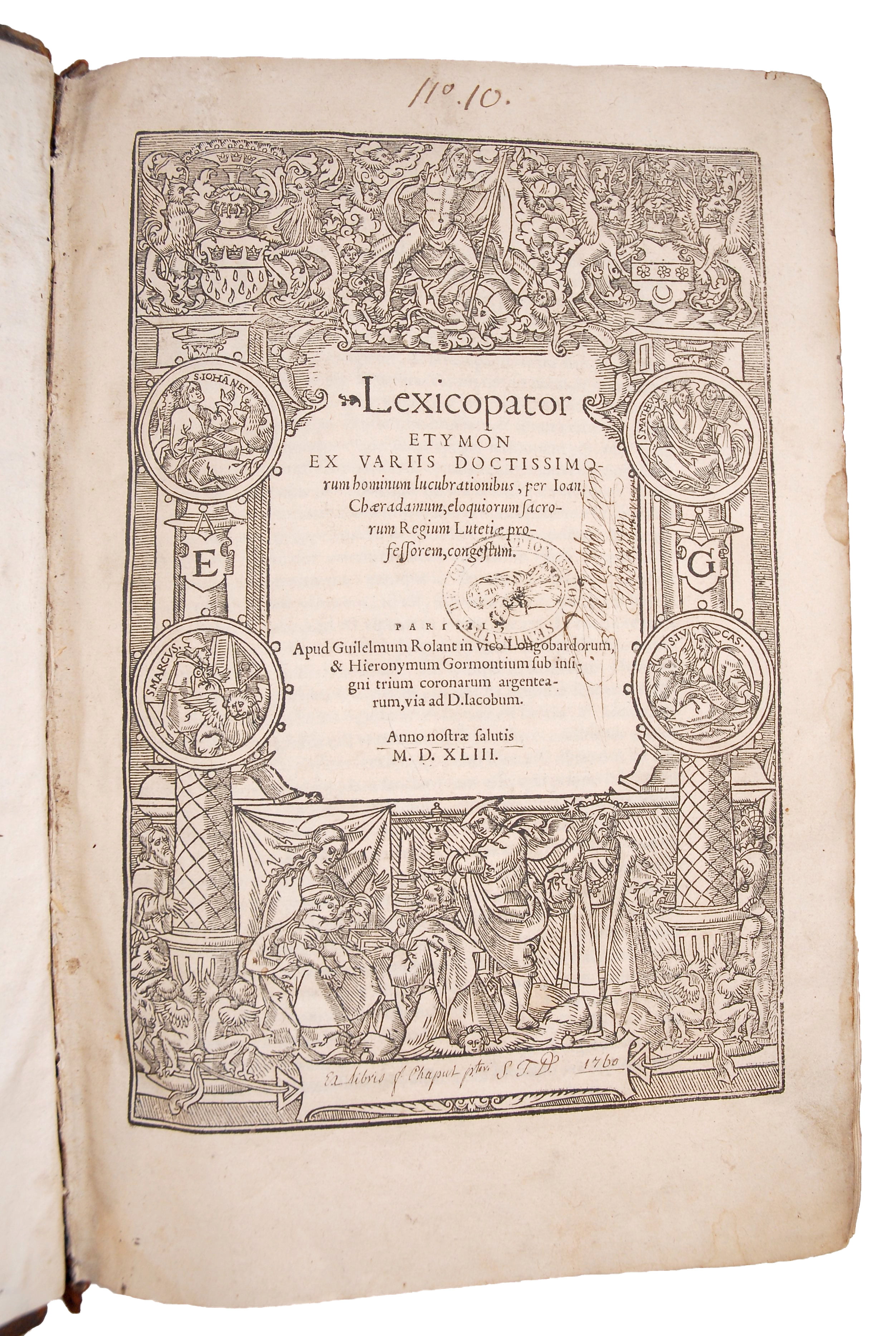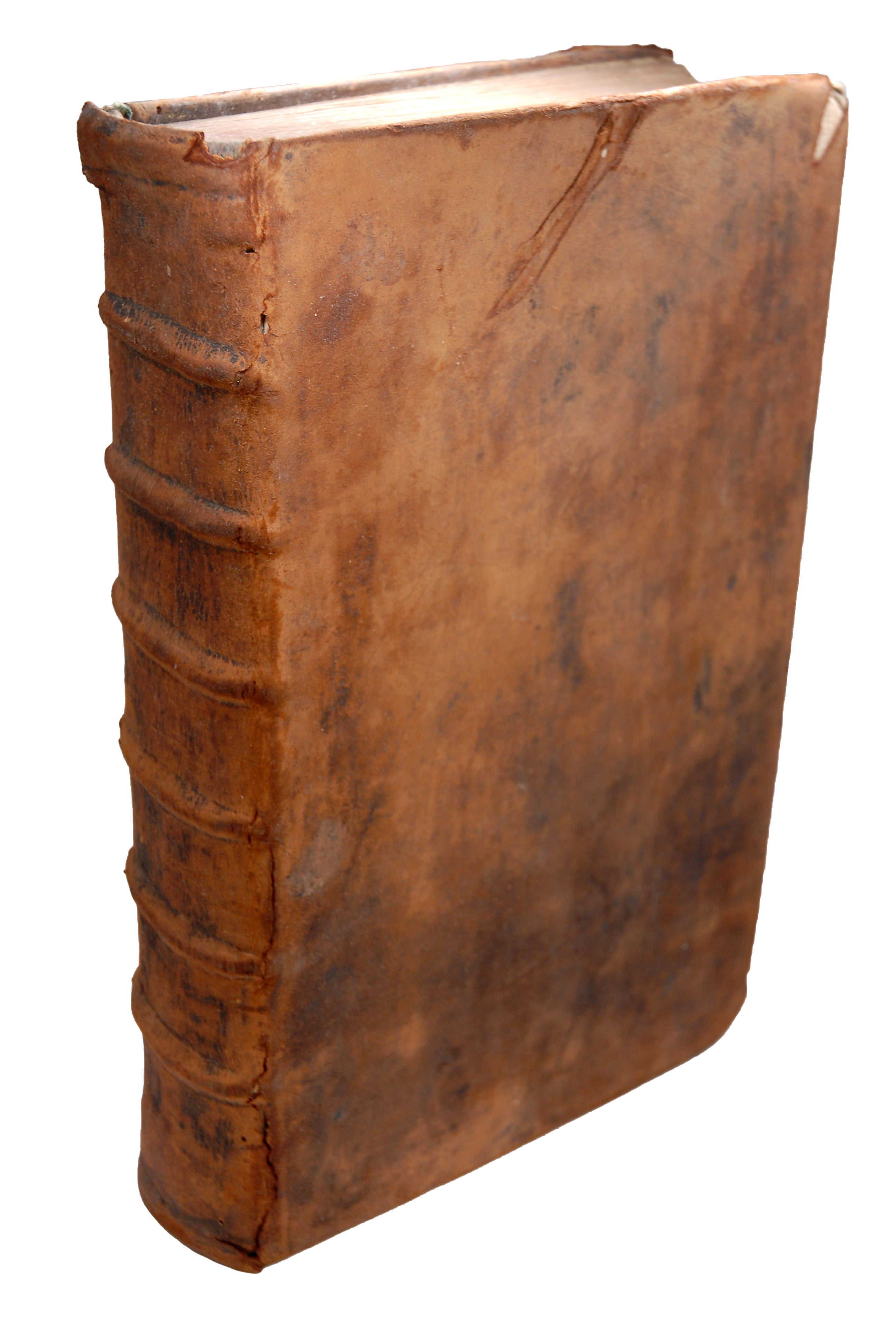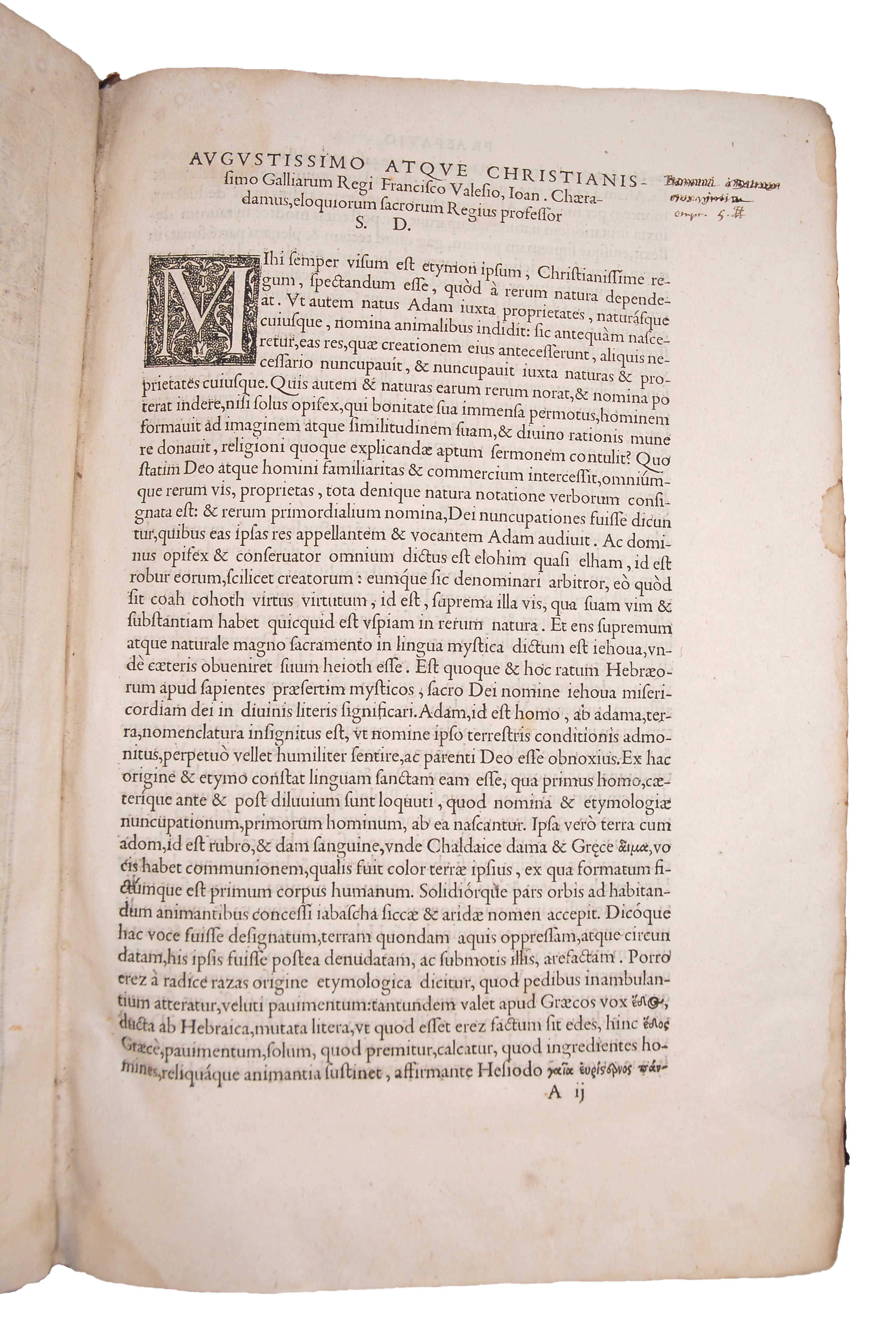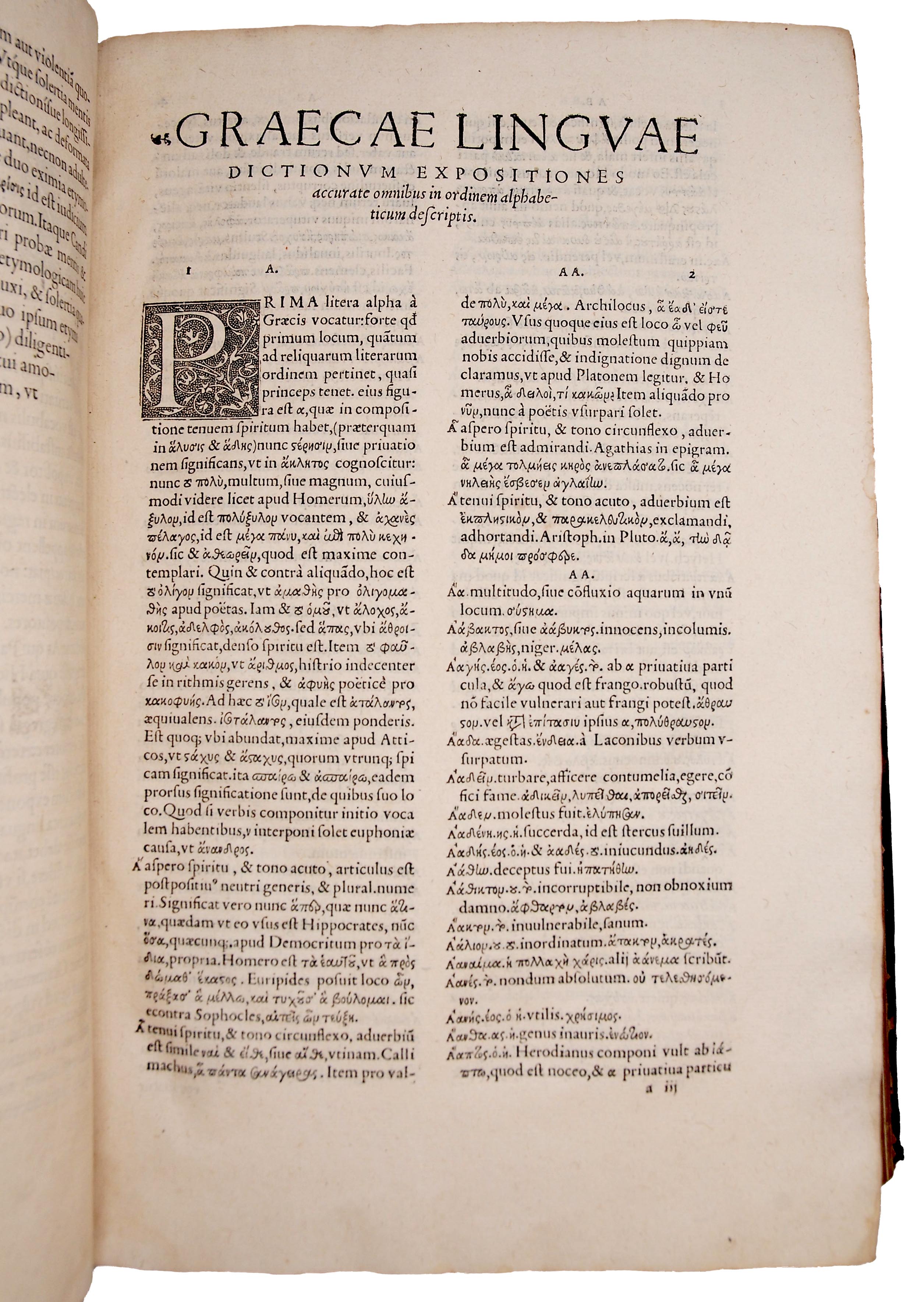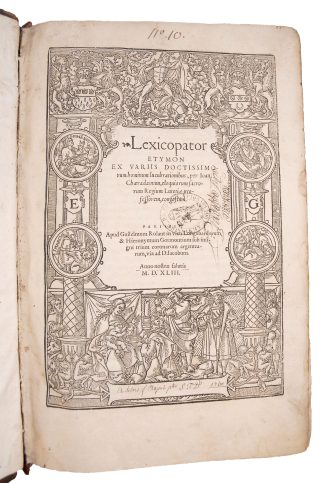CHÉRADAME, Jean
SCARCE ETYMOLOGICAL DICTIONARY
Lexicopator Etymon ex Variis Doctissimo
Paris, apud Guilelmum Rolant & Hieronymum Gormontium, 1543£2,750.00
FIRST EDITION. Folio. p. [lxxxiv] 1910 columns [cxii], error in numbering: 1753-1772 omitted, text uninterrupted. Three parts in one. Roman and Greek letter, double column. Title within architectural woodcut border, depicting Nativity attended by Three Wise Men, medallion portraits of Evangelists within ornate ornamental border incorporating printer’s arms with monogram E.G. on columns. Stamp of the ‘Seminaire de Consolation’, a former monastery of the order of the Minims, closed 1906, on t-p. At foot, ms ‘Ex Libris F./J. Chaput Pteri (Presbyter) S.T.D. 1760’ (Sacrae Theologiae Doctor), repeated on fly leaf. Floriated, white on black initials in Ars Etymologica and Graecae Linguae Dictionum Expositiones. In contemporary reversed sheep, slightly discoloured, raised bands. Surface crack to upper joint, damage to corners and covers towards upper edge. Very occasional light water stains to upper margins. A few pressed flowers between pages.
A handsome, well margined copy of this uncommon first edition Greek-Latin etymological dictionary and Greek grammar by Jean Chéradame, a 16th century Hebrew and Hellenist scholar. A large folio organised into three sections, which comprise ‘Ars etymologica’, ‘Etymi paedion’ – an alphabetical dictionary of the Greek language – and ‘Farrago libellorum’ – a collection of booklets by Greek grammarians on subjects such as ‘De Notis Arithmeticis’ and ‘De Numero Graecorum’. The preface contains a reflection on linguistic history, with reference particularly to Hebrew as well as Latin and Greek. Chéradame considers the origin of language to be the utterances of God, which were then heard and learnt by Adam to create a ‘lingua sancta’. In ‘Farrago libellorum’, Chéradame includes expositions on different forms of the Greek language, including ‘De Ionica Lignua’, ‘De Attica Lingua’, and ‘De Lingua Dorica’, among others. These sections are in both Latin and Greek.
Chéradame is the author of numerous titles, including Alphabetum linguae sanctae (1532), and Rudimenta quaedam Hebraicae grammaticę (1523). Gabriel-Henri Gaillard said of Chéradame: “We don’t know his French name; that of Chéradame is an allegorical Greek name by which he claimed to express his ardour to overcome the difficulties of study; he also took the name Hippocrates, apparently because he had studied medicine. This man does not appear to have been modest; he is too little known for the names and praise he gives himself” (Gabriel-Henri Gaillard, History of François the First, Saillant and Nyon, Paris, vol. VII, 1769, p. 332-333). In this medical capacity, Chéradame published one of the first treatises on syphilis in 1519 (Codoñer, J., 2016, page 261). One of the first Greek teachers at the Collège de France, he also published a number of grammars of Greek, as well as Lexicon Graecum (Paris, 1523). The present work, dedicated to King Francis I, followed 20 years later and was intended to supplement the Lexicon Graecum.
USTC 153738; Not in ESTC, Adams, Brunet, or Graesse.In stock


